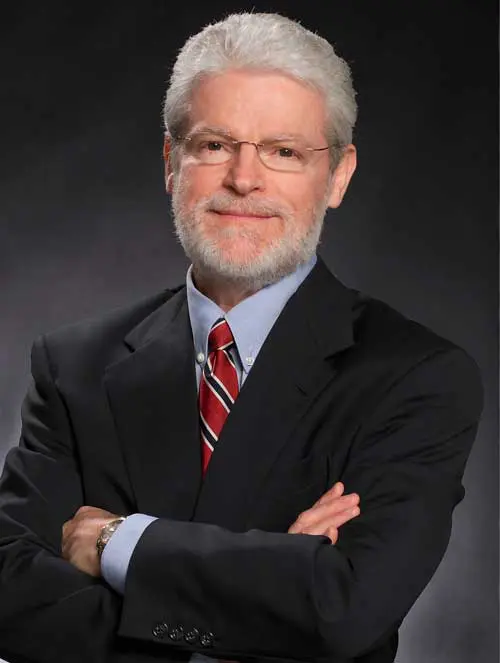True Confidence Video Transcript
True confidence isn’t at all what you’ve been told. I’ve been studying confidence for 50 years. And to really grasp true confidence, you not only have to think outside the box, you have to put everything you have ever heard, read, or thought about confidence in a box and then throw that box out the window.
My new theory shows that we don’t learn true confidence. Instead, an automatic feeling of worth and importance was passed down to all of us by our ancestors. It’s the same inborn emotion that caused them to feel, “My children should sleep by the fire,” and “I will kill that mammoth with this sharpened stick.”
True confidence is an absolutely unshakable belief in yourself. Imagine that you’re Charles Lindbergh in1927 looking out at 3,000 miles of dark, cold ocean. Two-man teams of famous pilots flying tri-engine planes designed by geniuses have failed to cross the Atlantic, and six men have died trying. You’re a 25-year-old unknown college dropout flying mail out of Peoria. You haven’t done any long distance flying. The sky’s gray. The runway is so muddy that some think you might not get up enough speed to clear the wires at the end. You’re about to climb into a tiny, single-engine plane with no front windshield and fly of the shores of New York. What magic belief in yourself makes you feel, I can do this?
If we all inherited this inborn confidence, then why don’t we all express it? After all, evolutionary theory holds that the strongest individual competes best and survives. But evolutionary biologists have recently added that species that cooperate, like ants and bees, survive and prosper far better than species that compete.
Humans compete and cooperate. What if some of us are programmed to feel their powerful instinctive confidence so that they can lead and the rest of us are programmed to suppress it so that we mostly cooperate.
My theory holds that the early human tribes most likely to survive would not be the ones in which every individual was constantly driven by enormous self-worth to battle for alpha status. That chaos would devastate tribes. Our ancestors’ tribes survived because a few felt worthy to lead and the rest were programmed to be worker bees, unconsciously suppressing or paralyzing their sense of importance.
Doesn’t that still describe our modern human tribe? A few feel worthy to lead—for example, Roosevelt, Lindberg, Kennedy, Martin Luther King, Oprah Winfrey, and Muhammad Ali. The rest of us are programmed to be worker bees, unconsciously injecting ourselves with anxieties, self-criticisms, and insecurities so that we compliantly follow the giant, invisible forces of evolution to keep ourselves safely tamed and our tribe stable and inching forward with our nose to the grindstone, shoulder to the wheel.
One of the many facts indicating that most of us generate negative feelings to suppress our instinctive confidence is how uneasy most of us are with strong confidence. I’ve been a psychologist for 40 years and done over 50,000 sessions with clients. They usually want more confidence, but when I give them a peek at their inborn belief in themselves they say, “No, you’re trying to make me cocky and conceited.” One of my wittiest clients responded, “I’m going to the post office to see if your picture is on a wanted poster.”
Simply asking them to picture themselves important and desirable made most of them uncomfortable and some to have panic attacks.
When my clients release great confidence, they always avoid acting conceited or cocky. Feeling really good about yourself doesn’t make you think acting like a pompous jerk is cool. You’ll still want people to like you.
I know first-hand about anxiety and insecurity. I began reading books on how to build confidence in eighth grade because I was painfully nervous around girls and my palms sweated so badly playing baseball that my bat sometimes flew out of my hands. I didn’t want to live my life feeling anxious. For thirty years I tried books, affirmations, positive thinking and every other confidence building technique I could find. I even opened the country’s first psychology/self-improvement store. Nothing delivered solid confidence.
Then one night twenty years ago about midnight an experience that I’ll describe in a blog post jolted me into thinking outside the box. Since then I’ve been developing my theory of and designing and testing my program of easy visualizations—I call them fancy daydreams. They teach your emotional brain to get comfortable with your inborn confidence and let you release and enjoy it.
Confidence Beyond Measure: The Science of Believing in Yourself in simple, non-technical language presents these ideas and the research in psychology, neuroscience, anthropology, primatology, and evolutionary biology that they’re based on.
You can learn more by clicking on the Watch or Read Video Blog button near the upper right corner of this video screen or you can click on the Get the Book button.


